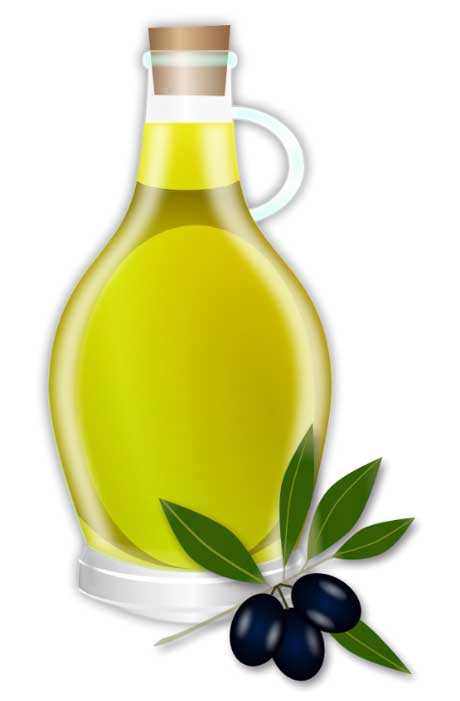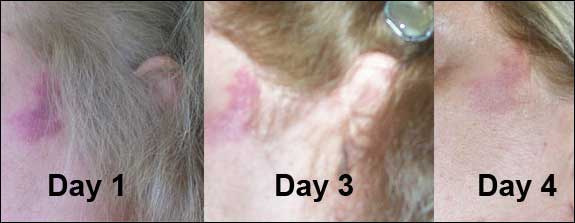Skin herbs
Treating skin problems with natural remedies
Herbal remedies are perfect for treating skin problems including dryness, flaky skin, a sallow complexion, abscesses, and other skin infections. Medicinal herbs and essential oils can help heal the skin and protect from further damage.

The skin is the body’s largest organ. It consists of multiple layers that protect the body from germs and other environmental toxins. Skin has many purposes including temperature regulation and insulation.
A thin film called the “acid mantle” covers healthy skin and acts as a barrier. Household chemicals and detergents can strip the acid mantle causing all kinds of skin problems.
Medicinal herbs can heal and balance the skin.
Many herbs (which are packed with minerals, antioxidants, and bioflavonoids) are great for the skin. Medicinal herbs like calendula and chickweed help cleanse, hydrate, heal, and balance the skin.
Herbs heal and protect the skin
Herbs especially suited for use in healing and protecting the skin include burdock root, rose hips, evening primrose oil, green tea, echinacea, sage, ginseng, calendula, rosemary, aloe, dandelion, lavender, St. John's Wort, and chamomile.
Any herbal tea that cleanses the blood can be used to improve the skin. Drink herbal tea and apply the tea as a wash or lotion on problem areas.
Essential oils for the skin
Ylang-ylang, jasmine, lavender, sandalwood, and frankincense are favorite essential oils for the skin.
Aging skin and wrinkles benefit from gentle massage with rose oil or carrot seed oil (blended with a good carrier like almond or grape seed oil).
Many ordinary kitchen ingredients can benefit the skin.
- Yogurt facials help balance ph.
- Oatmeal exfoliates dead cells.
- Apple or papaya pulp can improve acne break-outs.
- Egg white applications temporarily smooth wrinkles (whip egg white, apply to skin and let dry, apply warm wet wash cloth on face to soften egg mask, and gently peel or slide egg white off of face).
- A mixture of honey and red wine can help aging skin look supple and refreshed (leave on for twenty minutes, then rinse well).
Finish all treatments with an application of gentle moisturizer.
Moisturize with quality oils.
Moisturizers that contain petroleum products like mineral oil just sit on the skin. These moisturizers can block pores and cause blackheads.
Any good vegetable oil is much more appropriate. Almond oil, walnut oil, olive oil, safflower oil, sesame seed oil, grape seed oil, avocado oil, and jojoba oil sink in to deliver nutrients. Coconut oil and cocoa butter also add nourishment to the skin.
Most of these oils can be found at your local grocery store. If not, they are available at health food stores and online.
All about the skin
This video form Ted-Ed teaches us all kinds of interesting things about the skin.
Skin contains naturally occurring oils.
The skin's oils, also known as sebum, protect and lubricate the skin. Washing with harsh soaps or alcohol based cleansers removes sebum and damages the skin. Treat skin gently.
Healthy skin depends on a healthy lifestyle.
Skin can develop many problems. Symptoms of poor skin health include sores, spots, cracks, oiliness, dryness, scaling, itching, chapping, pimples, and rash.
Causes are varied and may include stress, caffeine overload, allergies, high copper levels, poor digestion, constipation, poor circulation, lack of exercise, sun damage, irritating cosmetics, liver malfunction, air pollution, dehydration, and drug or alcohol abuse.
Good diet can improve skin health.
Healthy skin requires good diet and lots of water. Include citrus fruits, whole grains, carrots, beets, cucumbers, and other fresh veggies in the diet to maintain beautiful skin.
Use olive oil internally and externally to improve the health of skin.
Skin loves vitamin E. Add quality cold-pressed olive oils which are full of vitamin E to the diet.
Avoid rancid, off smelling oils. Rancid oils harm the skin and are extremely damaging to the whole body. Keep all oils in a cool, dark place and discard if they start to smell off.

Early morning sunshine can be of benefit to the skin.
A little sunshine doesn't hurt and can help the body to produce more vitamin D. Sunshine can also uplift the spirit.
Do not allow your skin to become sunburned.
Over exposure to damaging rays is one of the worst things for the skin. NEVER allow skin to burn!
Don’t forget sunscreen when leaving the house. Sunscreens protect from premature aging and help prevent skin cancer.
Thirty minutes before going outside, use a medium to high SPF rated sunscreen containing quality ingredients. Avocado oil, sesame oil, and shea butter contain naturally occurring sunscreens although they have relatively low SPF ratings compared to commercial products.
Use these fine oils as a moisturizer along with commercially prepared sunscreens for best results.
Avoid using citrus oils such as orange, lemon, lime, or bergamot before exposure to sunlight. Citrus oils reduce the effectiveness of sunscreens and may even cause uncomfortable skin reactions when applied before sun exposure.

Herbs can be used to treat abscesses and boils.
Abscesses, known as boils or carbuncles, indicate a depressed immune system. Treatments for abscesses and skin problems include exposure to early morning sunlight, applications of fresh garlic juice, Aloe Vera, echinacea, black walnut extract, tea tree oil, cleavers, chickweed, or liquid chlorophyll.
Diet can also help. Yogurt, burdock root tea, and zinc supplements give good results. Beta Carotene, Vitamin E, and Vitamin C are also recommended. Cut out all sugar and refined food.
Treating my skin problem with herbs

Home remedy for my skin problem worked!
I woke up one morning with this painful area on my face. Symptoms included swelling, redness, a hard knot under the skin, fever in the red area, itching, burning, and some nausea.
It may have been caused by a spider, or perhaps it was some sort of staff infection or allergy. There were no bite marks.
Either way, I decided to treat it myself with herbal remedies. If my skin problem didn't improve or got worse, then I would go to my doctor.
First I took a couple of vitamin C tablets, an astragalus capsule, and ate a small ginseng root. Next I made a poultice out of five small plantain leaves, four mint leaves, a pinch of myrrh powder, four drops of lavender essential oil, and a teaspoon of water.
I applied the poultice, covered with a bandage, and left it in place for a couple of hours. This was very cooling. I chewed on some candied ginger to relieve mild nausea.
That night I applied a new poultice to the "infection" and covered with a bandage. The next morning the redness was starting to fade but itching was intense.
I switched to a mud pack which would stay on without a bandage, applying green clay with a few drops of lavender oil and half teaspoon of ground echinacea leaves mixed in. I washed this off and reapplied whenever itching became unbearable.
I repeated clay mud applications on day three, and by day four my skin was healed. These home remedies worked quickly, left no scarring, and saved me a doctor bill.
The skin, herbs, and science
Because of side effects, there is a movement to return to natural remedies for skin problems. Both doctors and patients are looking for safe treatments for dermatologic disorders.
Here are examples of common disorders and natural remedies that have been found to help:
- Acne - plants with exfoliative properties can help. Try fruit extracts with Witch Hazel to clear up skin. Tea tree oil is also effective.
- Alopecia - in studies, herbal soaps containing thyme, rosemary, lavender, and cedarwood can help.
- Fungal infection - garlic and thyme are proven to help clear the skin.
- Dermatitis - arnica, applied externally can help insect bites, bruises, boils, acne, and psoriasis. Drinking chamomile tea is also shown to help many types of dermatitis.
- Poison ivy - Jewelweed is beneficial when used on the exposed area. Other herbs shown to help heal itchy skin include viola, marshmallow, plantain, fenugreek, slippery elm, flax, and oats.
- Herpes simplex - lemon balm, a member of the mint family, is shown to clear lesions within eight days.
- Herpes zoster - Capsaicin, from cayenne pepper, is shown to reduce pain when used as a cream.
- Pruritus - itchy skin without a visible cause can be treated with camphor cream or lotion. Birch and juniper may be added for extra strength.
- Psoriasis - Aloe vera, curcumin (turmeric), birch tar, and cayenne are known to help heal psoriasis.
- Out breaks caused by depression and anxiety - Kava kava, lavender, St. John's Wort, magnolia bark, lemon balm, passion flower, and valerian are shown to help.
- Scabies - Anise seed essential oil is proven to have insecticidal activity against mites and head lice, but should not be used during pregnancy. Neem and turmeric is also beneficial.
- Skin cancer - Red ginseng, propolis from honey bees, rosemary, milk thistle, and green tea are shown to help.
- Warts - extract from the root of American mayapple is shown to help get rid of warts. Do not take it internally!
- Vitiligo - slow spreading vitiligo can be treated with ginkgo biloba.
- Wound and burns - use aloe vera, honey, calendula, goldenrod, lavender, mullein, oak bark, St. John's Wort, and yellow dock.
More information from Every Green Herb
Read about treating acne with natural remedies
Read about herbs for eczema and rashes
Read about natural treatments for warts, skin tags, and moles
Read about herbs for aging skin and wrinkles
Read about natural remedies to protect against skin cancer
Read about herbs for hives
*Calendula belongs to the same family as daisies, chrysanthemums, and ragweed. In cases of allergic reaction, discontinue use. Calendula may affect conception when taken by either man or woman, so avoid when trying to get pregnant. Do not use calendula when pregnant or nursing.
Only use one remedy at a time and give it a chance to work. Discontinue use if irritation develops.
Always consult with a healthcare professional before using any herbal remedy especially during pregnancy, while nursing, or while taking prescription medications.
Sources:
https://www.ncbi.nlm.nih.gov/books/NBK92761/
Blessings to you and yours!
Thanks so much for reading my blog. Jan.

*Note - the information on this website has not been evaluated by the Food and Drug Administration.
© 2005-2024 website design and content by Janice Boling